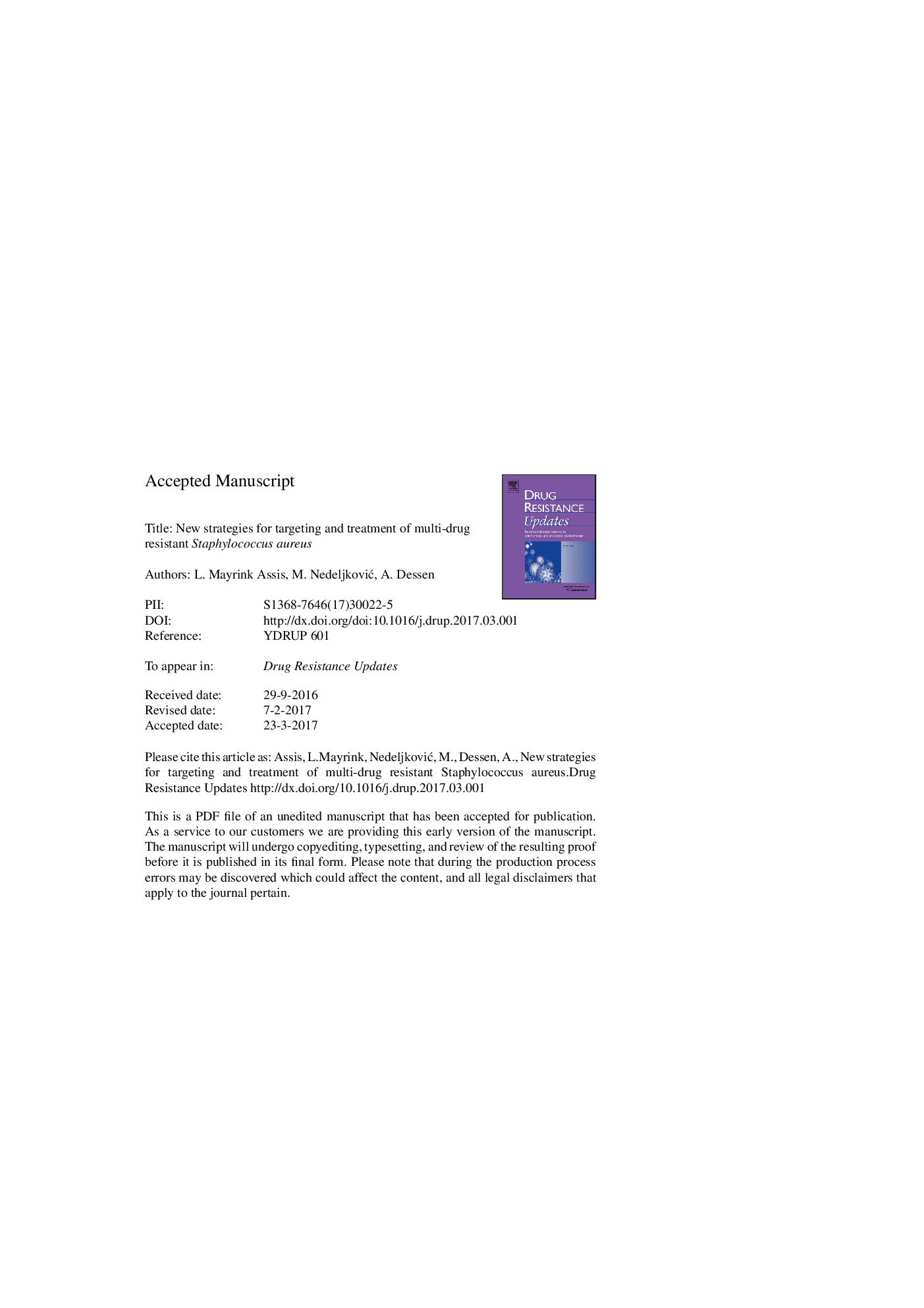| Article ID | Journal | Published Year | Pages | File Type |
|---|---|---|---|---|
| 8436549 | Drug Resistance Updates | 2017 | 57 Pages |
Abstract
Staphylococcus aureus is a major cause of bacterial infection in humans, and has been notoriously able to acquire resistance to a variety of antibiotics. An example is methicillin-resistant S. aureus (MRSA), which despite having been initially associated with clinical settings, now is one of the key causative agents of community-acquired infections. Antibiotic resistance in S. aureus involves mechanisms ranging from drug efflux to increased expression or mutation of target proteins, and this has required innovative approaches to develop novel treatment methodologies. This review provides an overview of the major mechanisms of antibiotic resistance developed by S. aureus, and describes the emerging alternatives being sought to circumvent infection and proliferation, including new generations of classic antibiotics, synergistic approaches, antibodies, and targeting of virulence factors.
Related Topics
Life Sciences
Biochemistry, Genetics and Molecular Biology
Cancer Research
Authors
L. Mayrink Assis, M. NedeljkoviÄ, A. Dessen,
